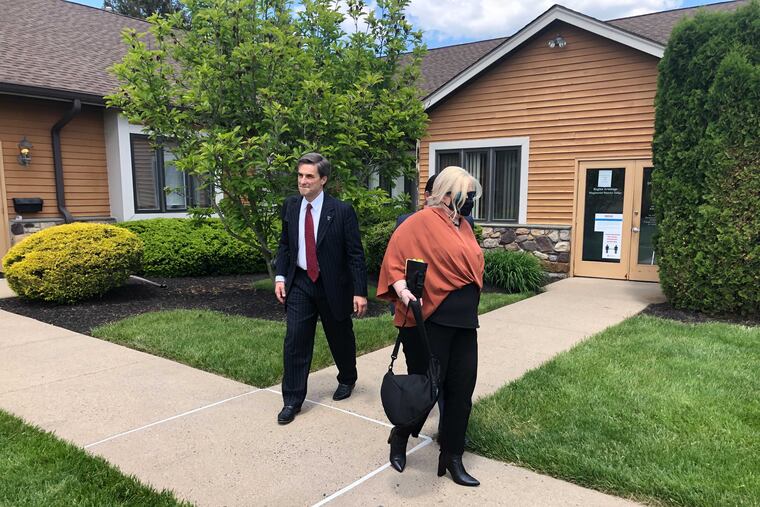Bucks County woman heading to trial for cyber harassment amid doubts about ‘deep fake’ photos
Rafaella Spone was accused of creating deep fake videos of girls on her daughter’s cheerleading team.

Bucks County prosecutors on Friday backtracked on their claims that a Chalfont woman created compromising photos of her daughter’s cheerleading rivals before anonymously sending them to the team’s coaches, an accusation that made international news.
Nevertheless, they said, Rafaella Spone, 50, engaged in a pattern of harassment by repeatedly texting photos and videos of the girls naked, drinking, vaping, and talking about sex, to their parents and the coaches of the Victory Vipers cheerleading squad.
Magisterial District Judge Regina Armitage agreed, and Spone will face trial on three counts of cyber harassment of a child and one count of harassment.
In those texts, Spone allegedly said she was “concerned” about the girls’ behavior, and suggested their parents should be as well.
But Assistant District Attorney Julia Wilkins said the texts were intended to smear the girls’ reputations and make them feel threatened.
“There are numerous texts over a period of time to these parents, to this gym, all in a negative light about these underage girls,” Wilkins said.
In pressing that case, prosecutors took a significant step back from their initial allegation that Spone had weaponized the use of technology. At the close of the hearing, it was unclear whether the photos and videos might have been taken from the girls’ social media accounts.
District Attorney Matthew Weintraub said in a statement Friday that while the initial evidence showed that a video of an underage girl had been doctored, “police at this point are unable to confirm the video evidence was falsified.”
“While the original assessment that some of the evidence was created by media manipulation may not end up being accurate, a neutral finder of fact will ultimately have the opportunity to determine if the evidence in this case shows Ms. Spone sent photos, videos, and texts designed to harass three innocent children,” Weintraub said.
Spone’s attorneys, Robert Birch and Cary Hall, said they were stunned by the shift in the prosecution case during the three-hour hearing. They called the evidence presented by Wilkins “an entirely different case” than what was promised.
“We all expected to see this huge, detailed case featuring a comparison of manipulated videos and photos,” Birch said. “We sat there in stunned silence.”
Parents of the three girls identified as victims in the case testified that they received messages from a number they did not recognize last summer. The messages bore similar wording, warning them that their daughters had posted the attached photos and videos on social media.
Only one of the parents who testified Friday said she recognized the photos as images posted by her daughter on social media accounts.
After the families reported the messages to police, investigators from the Hilltown Township Police Department traced the numbers to Pinger, a smartphone app that allows users to send messages through “spoofed” phone numbers not connected to their cell phone accounts.
Further investigation linked those numbers to an IP address at Spone’s home, according to Detective Louis Bell. And a search warrant executed on her cell phone showed it had been used to send those messages through Pinger, Bell said.
Hall, one of Spone’s attorneys, said the evidence did not show anything criminal, and instead demonstrated the actions of a concerned parent, whose daughter often spent time with the girls depicted in the photos and videos.
“In the 1950s, this wouldn’t be a crime at all,” Hall said. “She’d probably get a medal.”